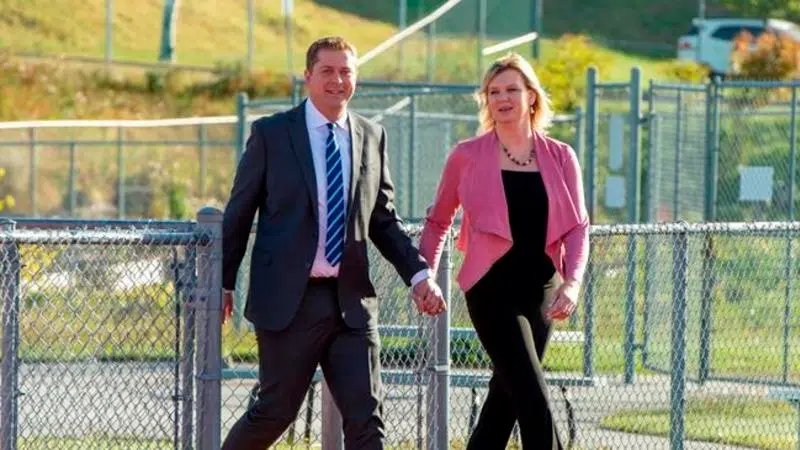
Fossil-fuel subsidies on Scheer’s list of possible corporate cuts
SAINT JOHN, N.B. — Conservative Leader Andrew Scheer said Friday fossil-fuel subsidies could be cut as part of his plan to find $1.5 billion in savings from corporate handouts — just a few hours after suggesting he wouldn’t target them because the world and Canada need more Canadian oil and gas.
Scheer said earlier this week he intends to help pay for more than $9 billion in spending and tax cut promises by eliminating at least $1.5 billion in federal subsidies that help profitable corporations or support foreign investors rather than Canadian workers.
At a news conference Friday morning in Saint John, N.B., Scheer was asked directly whether fossil-fuel subsidies would be among them, and in response stressed the need for Canada to produce more oil and gas.
“As long as there is international demand for oil and gas, I believe that Canada should be the one supplying it,” Scheer said in front of a Saint John hospital.


